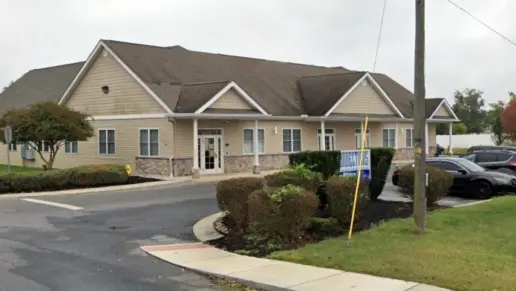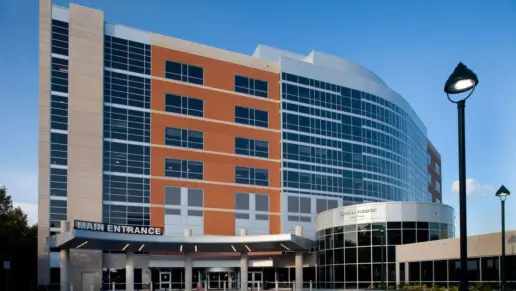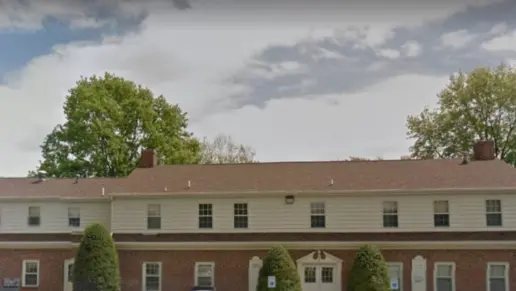Very understanding and empathetic staff who truly care about their clients and are willing to go above and beyond! They care and they help you. This place has SAVED my life!!!
About Connections CSP
Connections CSP, in Harrington, Delaware, is a comprehensive drug and alcohol rehab for adults. They provide medically supervised detox, medication assisted treatment (MAT), dual diagnosis care, and inpatient, outpatient, and aftercare services. Their primary treatment modalities include trauma informed individual, group, and family therapy.
Connections CSP is an addiction recovery center for adults in Harrington, Delaware, specializing in medically supervised detox, medication assisted treatment (MAT), and inpatient, outpatient, and aftercare services. Gender specific and dedicated programs for young adults and persons with co-occurring addiction and mental illness are available.
Clients undergoing detox and those in post detox recovery may receive FDA approved medications to ease withdrawal symptoms, prevent potentially serious medical complications, and support sustained recovery. MAT treatment options include methadone and buprenorphine induction and maintenance.
The inpatient program at Connections CSP allows clients to focus on their recovery in a highly structured and supportive environment. Clients receive medical and mental health assessments, personalized care planning, and comprehensive case management. They also engage in intensive, 12 step focused, trauma informed individual, group, and family counseling.
Connections CSP’s outpatient programming is designed to support long term recovery through wraparound care aligned with clients’ evolving needs. Levels of care include medically supervised ambulatory (outpatient) detox, intensive outpatient (IOP), standard outpatient, and aftercare. Peer coaching, community based recovery program induction, career counseling, and referrals for medical, mental health, and social service programs are available.
Connections CSP is a nonprofit organization that accepts private insurance, military insurance, Medicare, Medicaid, and self pay. Financial aid is available.
Latest Reviews
Rehab Score
Gallery
Other Forms of Payment
Medicaid is a state based program that helps lower-income individuals and families pay for healthcare. Medicaid covers addiction treatment so those enrolled can use their coverage to pay for rehab. When a program accepts Medicaid the client often pays very little or nothing out of their own pocket.
Private insurance refers to any kind of healthcare coverage that isn't from the state or federal government. This includes individual and family plans offered by an employer or purchased from the Insurance Marketplace. Every plan will have different requirements and out of pocket costs so be sure to get the full details before you start treatment.
Self-pay involves paying for treatment out of your own pocket. You can use savings or credit, get a personal loan, or receive help from family and friends to fund your treatment. If you don't have insurance or your insurance plan doesn't cover a specific program, self-pay can help ensure you still get the care you need.
Financial aid can take many forms. Centers may have grants or scholarships available to clients who meet eligibility requirements. Programs that receive SAMHSA grants may have financial aid available for those who need treatment as well. Grants and scholarships can help you pai for treatment without having to repay.
Medicare is a federal program that provides health insurance for those 65 and older. It also serves people under 65 with chronic and disabling health challenges. To use Medicare for addiction treatment you need to find a program that accepts Medicare and is in network with your plan. Out of pocket costs and preauthorization requirements vary, so always check with your provider.
Military members, veterans, and eligible dependents have access to specific insurance programs that help them get the care they need. TRICARE and VA insurance can help you access low cost or no cost addiction and mental health treatment. Programs that accept military insurance often have targeted treatment focused on the unique challenges military members, veterans, and their families face.
Addiction Treatments
Levels of Care
Treatments
The goal of treatment for alcoholism is abstinence. Those with poor social support, poor motivation, or psychiatric disorders tend to relapse within a few years of treatment. For these people, success is measured by longer periods of abstinence, reduced use of alcohol, better health, and improved social functioning. Recovery and Maintenance are usually based on 12 step programs and AA meetings.
Recovery is possible for those who complete drug rehab in Delaware. These programs specialize in providing an environment that encourages sobriety and a professional staff that provides the tools to overcome addiction. Participants receive a customized treatment plan tailored to their needs.
Opioid rehabs specialize in supporting those recovering from opioid addiction. They treat those suffering from addiction to illegal opioids like heroin, as well as prescription drugs like oxycodone. These centers typically combine both physical as well as mental and emotional support to help stop addiction. Physical support often includes medical detox and subsequent medical support (including medication), and mental support includes in-depth therapy to address the underlying causes of addiction.
Substance rehabs focus on helping individuals recover from substance abuse, including alcohol and drug addiction (both illegal and prescription drugs). They often include the opportunity to engage in both individual as well as group therapy.
Programs


Clinical Services
Research clearly demonstrates that recovery is far more successful and sustainable when loved ones like family members participate in rehab and substance abuse treatment. Genetic factors may be at play when it comes to drug and alcohol addiction, as well as mental health issues. Family dynamics often play a critical role in addiction triggers, and if properly educated, family members can be a strong source of support when it comes to rehabilitation.
Group therapy is any therapeutic work that happens in a group (not one-on-one). There are a number of different group therapy modalities, including support groups, experiential therapy, psycho-education, and more. Group therapy involves treatment as well as processing interaction between group members.
In individual therapy, a patient meets one-on-one with a trained psychologist or counselor. Therapy is a pivotal part of effective substance abuse treatment, as it often covers root causes of addiction, including challenges faced by the patient in their social, family, and work/school life.
Amenities
-
Private Transportation
Staff

President and CEO

Director of Human Resources

Vice President, Human Resources

Chief of Staff

Director of Communication and Community Relations
Contact Information
1 East Street
Harrington, DE 19952


